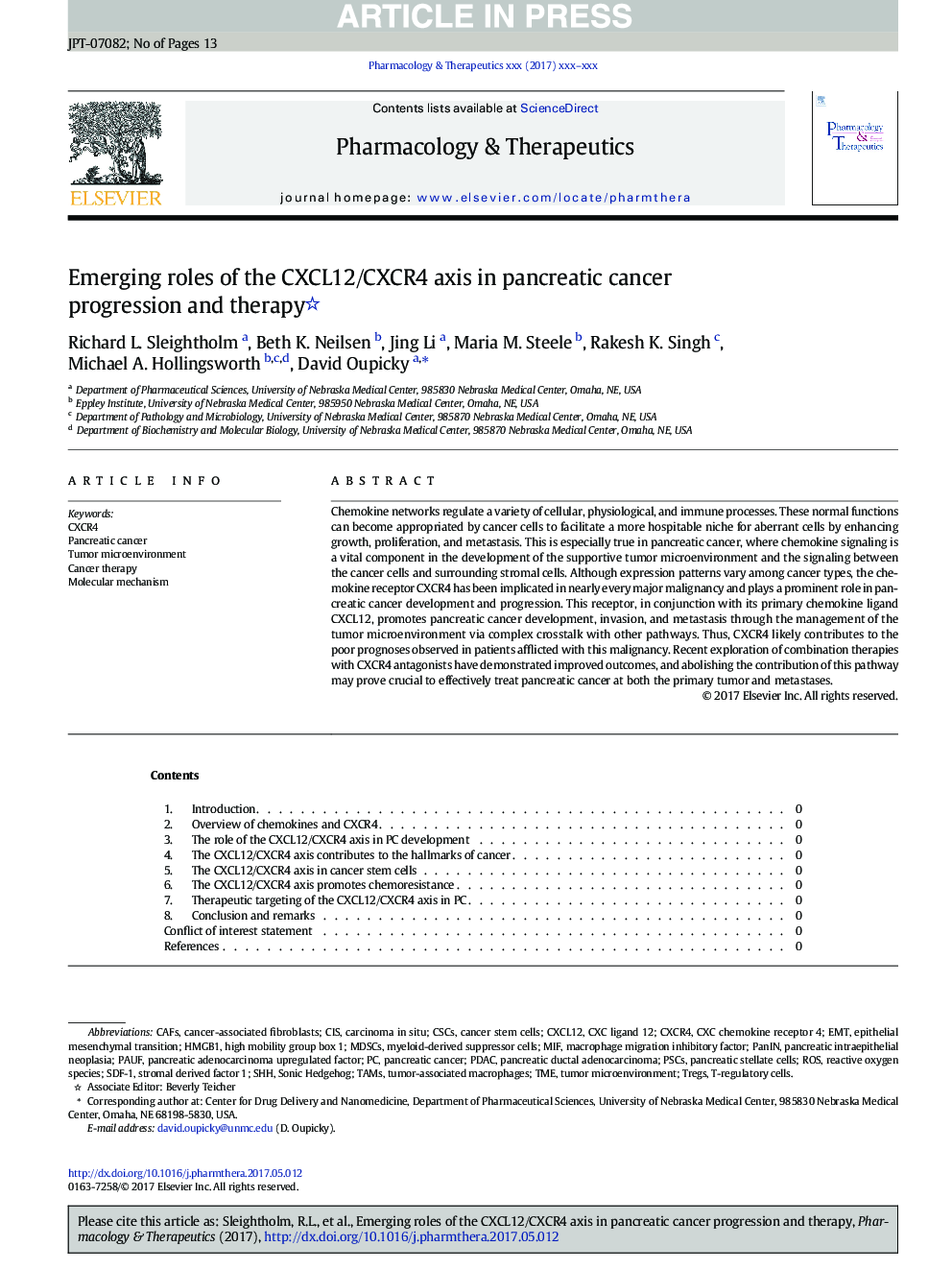| کد مقاله | کد نشریه | سال انتشار | مقاله انگلیسی | نسخه تمام متن |
|---|---|---|---|---|
| 8537033 | 1560926 | 2017 | 13 صفحه PDF | دانلود رایگان |
عنوان انگلیسی مقاله ISI
Emerging roles of the CXCL12/CXCR4 axis in pancreatic cancer progression and therapy
دانلود مقاله + سفارش ترجمه
دانلود مقاله ISI انگلیسی
رایگان برای ایرانیان
کلمات کلیدی
PAUFCISCSCsCAFsMDSCsCXCR4HMGB1CXCL12epithelial mesenchymal transition - انتقال مزانشیمی epithelialEMT - تکنسین فوریتهای پزشکیMyeloid-derived suppressor cells - سلول های سرکوبگر مشتق از میلوئیدCancer stem cells - سلولهای بنیادی سرطانیMIF - شهرMacrophage migration inhibitory factor - عامل مهارکننده مهاجرت ماکروفاژCancer-associated fibroblasts - فیبروبلاست های مرتبط با سرطانpancreatic intraepithelial neoplasia - نئوپلاسی داخل پاتوسی پانکراسPanIN - پانینHigh mobility group box 1 - کادر تحرک بالا 1Carcinoma in situ - کارسینوم درجاCXC chemokine receptor 4 - گیرنده 4 شیمیایی CXC
موضوعات مرتبط
علوم پزشکی و سلامت
داروسازی، سم شناسی و علوم دارویی
داروشناسی
پیش نمایش صفحه اول مقاله

چکیده انگلیسی
Chemokine networks regulate a variety of cellular, physiological, and immune processes. These normal functions can become appropriated by cancer cells to facilitate a more hospitable niche for aberrant cells by enhancing growth, proliferation, and metastasis. This is especially true in pancreatic cancer, where chemokine signaling is a vital component in the development of the supportive tumor microenvironment and the signaling between the cancer cells and surrounding stromal cells. Although expression patterns vary among cancer types, the chemokine receptor CXCR4 has been implicated in nearly every major malignancy and plays a prominent role in pancreatic cancer development and progression. This receptor, in conjunction with its primary chemokine ligand CXCL12, promotes pancreatic cancer development, invasion, and metastasis through the management of the tumor microenvironment via complex crosstalk with other pathways. Thus, CXCR4 likely contributes to the poor prognoses observed in patients afflicted with this malignancy. Recent exploration of combination therapies with CXCR4 antagonists have demonstrated improved outcomes, and abolishing the contribution of this pathway may prove crucial to effectively treat pancreatic cancer at both the primary tumor and metastases.
ناشر
Database: Elsevier - ScienceDirect (ساینس دایرکت)
Journal: Pharmacology & Therapeutics - Volume 179, November 2017, Pages 158-170
Journal: Pharmacology & Therapeutics - Volume 179, November 2017, Pages 158-170
نویسندگان
Richard L. Sleightholm, Beth K. Neilsen, Jing Li, Maria M. Steele, Rakesh K. Singh, Michael A. Hollingsworth, David Oupicky,